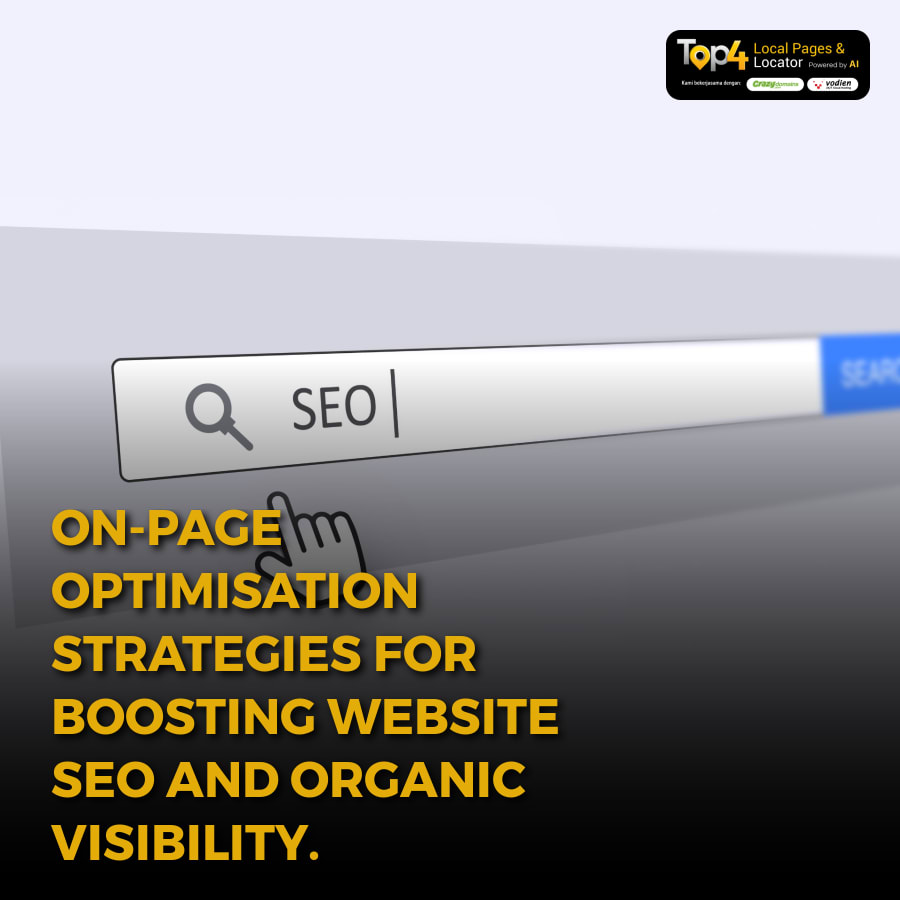Can your website's SEO efforts truly enhance your organic visibility? The answer lies in an often overlooked yet paramount component: on-page optimisation. Imagine crafting a magnificent store with no clear signage or directory for customers—how would they navigate? Similarly, without effective on-page strategies, search engines struggle to rank and users find it hard to connect. For local businesses and franchise owners, optimising your website’s on-page elements can make the difference between being found by potential customers or getting lost in the digital shuffle.
On-page optimisation is more than just stuffing keywords into your content. It's about creating a holistic and user-friendly experience that search engines and users both appreciate. Let's explore the various facets of on-page optimisation to help elevate your website's performance and achieve online success.
Understanding On-Page Optimisation
So, what is on-page optimisation? Simply put, it refers to all the measures taken directly within your website to improve its position in search rankings. This includes content quality, HTML tags, and internal links among other elements. It's a facet of SEO that you have full control over, unlike off-page optimisation which relies on external signals like backlinks.
Mastering on-page optimisation ensures that your website is not only visible to search engines but also provides a seamless experience for users. This, in turn, aids in achieving better organic visibility.
Content Quality and Relevance
The cornerstone of any successful on-page optimisation strategy is high-quality content. Search engines strive to deliver the most relevant and valuable information to users. Hence, your content should address user intent and provide actionable insights.
Focus on crafting detailed, well-researched, and engaging content that answers the queries of your target audience. Use keywords naturally but sparingly to maintain a natural tone. High-quality content not only satisfies search engine algorithms but also keeps your visitors engaged, reducing bounce rates and increasing the likelihood of conversions.
Optimising HTML Tags
HTML tags like title tags, meta descriptions, header tags, and alt text are vital components of on-page optimisation. Title tags should be concise and include your target keywords towards the beginning to maximise their impact. Meta descriptions, while not directly influencing rankings, can significantly affect click-through rates if they are compelling and accurately summarise the page content.
Header tags should be used to structure your content logically, making it easier for both users and search engines to understand. Alt text for images not only improves accessibility but also provides another opportunity to include relevant keywords.
Internal Links and URL Structure
Internal links play a crucial role in on-page optimisation by helping search engines crawl and index your site more efficiently. They also distribute page authority throughout the site, thereby helping lesser-known pages gain visibility.
Ensure that your URLs are clean, descriptive, and include target keywords where appropriate. Avoid lengthy and complicated URLs as they can be confusing for both users and search engines.
Technical SEO Considerations
Technical SEO might sound intimidating, but it includes fundamental on-page elements that should not be overlooked. Ensure that your website is mobile-friendly, as more users now access content through smartphones. Page speed is another critical factor; a slow-loading site can deter users and harm your rankings.
Implementing SSL certificates for your site is essential for securing user data and boosting your site's credibility. Additionally, make sure that your site is free from technical errors like broken links, as they can negatively impact user experience and search engine rankings.
Conclusion
On-page optimisation is the backbone of a successful website SEO strategy. By focusing on content quality, optimising HTML tags, utilising internal links, and addressing technical SEO aspects, you can significantly improve your site's organic visibility and user experience.
For local businesses and franchise owners, these enhancements can lead to more foot traffic, both online and offline. Remember, search engines aim to provide users with the most valuable information, and it’s up to you to make your site that source.
At Top4 Marketing, our expertise can help you craft a local marketing plan that aligns with your business goals and local community needs. Let us assist you in maximising your online strategy. Visit Top4 Marketing blog for more insights to elevate your business to new heights. Contact us today and start your journey towards local marketing success.



























